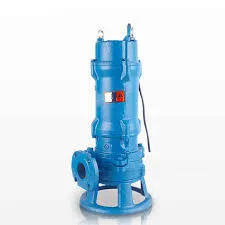English
- Afrikaans
- Albanian
- Amharic
- Arabic
- Armenian
- Azerbaijani
- Basque
- Belarusian
- Bengali
- Bosnian
- Bulgarian
- Catalan
- Cebuano
- Corsican
- Croatian
- Czech
- Danish
- Dutch
- English
- Esperanto
- Estonian
- Finnish
- French
- Frisian
- Galician
- Georgian
- German
- Greek
- Gujarati
- Haitian Creole
- hausa
- hawaiian
- Hebrew
- Hindi
- Miao
- Hungarian
- Icelandic
- igbo
- Indonesian
- irish
- Italian
- Japanese
- Javanese
- Kannada
- kazakh
- Khmer
- Rwandese
- Korean
- Kurdish
- Kyrgyz
- Lao
- Latin
- Latvian
- Lithuanian
- Luxembourgish
- Macedonian
- Malgashi
- Malay
- Malayalam
- Maltese
- Maori
- Marathi
- Mongolian
- Myanmar
- Nepali
- Norwegian
- Norwegian
- Occitan
- Pashto
- Persian
- Polish
- Portuguese
- Punjabi
- Romanian
- Russian
- Samoan
- Scottish Gaelic
- Serbian
- Sesotho
- Shona
- Sindhi
- Sinhala
- Slovak
- Slovenian
- Somali
- Spanish
- Sundanese
- Swahili
- Swedish
- Tagalog
- Tajik
- Tamil
- Tatar
- Telugu
- Thai
- Turkish
- Turkmen
- Ukrainian
- Urdu
- Uighur
- Uzbek
- Vietnamese
- Welsh
- Bantu
- Yiddish
- Yoruba
- Zulu
Telephone: +86 13120555503
Email: frank@cypump.com
Nov . 28, 2024 00:41 Back to list
Understanding the Function and Applications of Hydraulic Slurry Pumps in Industrial Processes
Understanding Hydraulic Slurry Pumps Applications and Benefits
Hydraulic slurry pumps are specialized machines designed to transport abrasive slurries, which are mixtures of liquid and solid particles. These pumps are crucial in various industries, including mining, construction, and wastewater treatment. The unique design and functionality of hydraulic slurry pumps allow them to handle materials that would be too challenging or damaging for standard pumps. This article will explore the key features, applications, and advantages of hydraulic slurry pumps, providing insight into why they are essential for industries dealing with challenging materials.
Key Features of Hydraulic Slurry Pumps
1. Durable Construction Hydraulic slurry pumps are engineered for toughness. They are typically constructed using high-grade materials such as steel or rubber that can withstand wear and tear from abrasive materials. This durability extends the lifespan of the pump and reduces the need for frequent maintenance or replacement.
2. Efficient Material Handling These pumps are designed to handle a wide range of slurries, including those with high solid content and varying particle sizes. The hydraulic design allows the pump to maintain efficiency while moving abrasive media, minimizing blockages and ensuring continuous operation.
3. Variable Flow Rates and Pressures Hydraulic slurry pumps can provide a range of flow rates and pressures adjustable to suit specific applications. This versatility allows operators to optimize performance based on the characteristics of the slurry, whether it is thick sludge or thin mixtures.
4. Self-Priming Capabilities Many hydraulic slurry pumps come with self-priming features, meaning they can clear air from the suction line automatically. This is particularly beneficial in applications where the pump may be located above the liquid source, ensuring that it maintains operational efficiency.
Applications of Hydraulic Slurry Pumps
1. Mining and Minerals Processing In the mining industry, hydraulic slurry pumps are essential for transporting slurry from ore processing. They facilitate the movement of minerals mixed with water, enabling efficient extraction and processing of valuable materials like gold, copper, and iron.
2. Construction During construction projects, hydraulic slurry pumps are used to transport cement and other construction materials in slurry form. This can include cement grouts for foundations or backfilling operations, making them indispensable in large-scale building projects.
hydraulic slurry pump

3. Wastewater Treatment In wastewater treatment plants, hydraulic slurry pumps handle sludge and sediment that accumulates during the treatment process. They play a vital role in ensuring that these by-products are efficiently removed and processed, maintaining the overall functionality of the treatment facility.
4. Dredging Operations Hydraulic slurry pumps are increasingly used in dredging applications to remove sediment and debris from bodies of water. They can handle heavily laden mixtures of sediment and water, making them suitable for maintaining navigable channels and harbors.
Benefits of Using Hydraulic Slurry Pumps
1. Increased Efficiency The robust design and operational capabilities of hydraulic slurry pumps mean that they can move a greater volume of slurry in less time, improving overall efficiency in operations.
2. Cost-Effectiveness By reducing downtime and maintenance needs, hydraulic slurry pumps can lead to significant cost savings over time. Their ability to handle abrasive materials effectively also decreases the likelihood of damage to the pumping equipment.
3. Enhanced Environmental Control In wastewater treatment, the efficient movement of sludge helps minimize odors and potential environmental contamination. This is crucial in maintaining compliance with environmental regulations and protecting local ecosystems.
4. Customizability Many hydraulic slurry pumps can be customized to meet specific project requirements. This adaptability ensures that companies can find the right solution for unique challenges, enhancing operational efficiency.
Conclusion
Hydraulic slurry pumps represent a vital component in various industrial applications, providing essential capabilities for handling abrasive mixtures effectively. Their durable design, adaptability to different materials, and efficient operation make them the preferred choice for industries that demand reliable and robust pumping solutions. As technological advancements continue, the functionality of these pumps will likely improve even further, cementing their status as indispensable tools in modern industry.
-
ISG Series Vertical Pipeline Pump - Chi Yuan Pumps Co., LTD.|Advanced Hydraulic Design&Energy-Efficient Solutions
NewsJul.30,2025
-
ISG Series Vertical Pipeline Pump - Chi Yuan Pumps Co., LTD.
NewsJul.30,2025
-
ISG Series Vertical Pipeline Pump - Chi Yuan Pumps Co., LTD.|energy-efficient fluid handling&industrial durability
NewsJul.30,2025
-
ISG Series Vertical Pipeline Pump - Chi Yuan Pumps | Advanced Engineering&Industrial Efficiency
NewsJul.30,2025
-
ISG Series Pipeline Pump - Chi Yuan Pumps | High Efficiency, Energy Saving
NewsJul.30,2025
-
ISG Series Vertical Pipeline Pump-Chi Yuan Pumps|High Efficiency&Reliable Performance
NewsJul.29,2025










